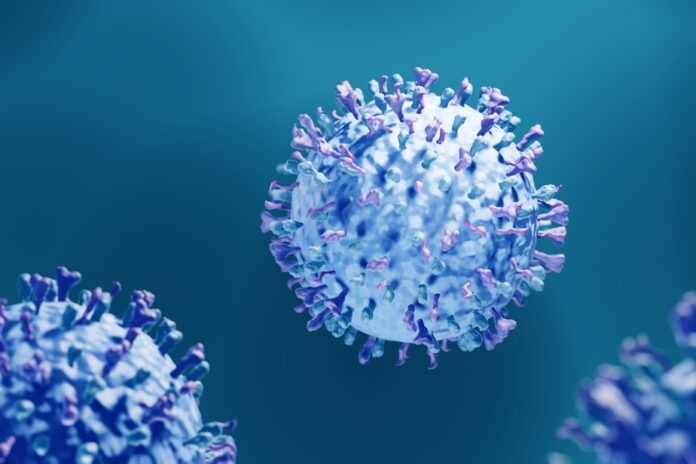Recall the headlines from last fall. From the end of October, the occupancy rate of pediatric hospital emergency rooms began to skyrocket. In early November, it even exceeded 200% at the Montreal Children’s Hospital. The same phenomenon was observed elsewhere in the world. And everywhere, the same culprit: respiratory syncytial virus, a highly contagious virus that normally attacks the bronchial tubes of children for the first time before the age of 2.
Due to sanitary barriers to limit the transmission of COVID-19, RSV circulated very little between 2020 and 2022. When circulation resumed at the end of 2022, a large number of toddlers had therefore never exposed, and in fact more of them required hospitalization (approximately 1% of children will be hospitalized in their first year of life due to RSV). RSV is the leading cause of hospitalization in children, well ahead of the flu or other respiratory viruses.
No, but young children, and especially babies, are more vulnerable to complications. With its small airways, a young child is less well equipped to expel the secretions generated by the infection. This can then degenerate into bronchiolitis.
If the immune system develops antibodies following an infection, this protection does not last forever. The older you get, the more RSV becomes a concern. The elderly are therefore also vulnerable to complications caused by the infection.
Apart from basic sanitary measures (washing your hands, coughing into your elbow, lark…), the pharmacy does not yet offer many options to prevent an RSV infection. A drug (palivizumab) is already available to prevent severe cases of RSV in certain high-risk infants and children. A second (nirsevimab), approved at the end of April, is also intended for newborns and infants. Both drugs are monoclonal antibodies given by injection. Other such drugs are also awaiting a stamp of approval before being marketed.
It will have taken some time to put a potion capable of targeting the weak point of the virus in a syringe. “Research began in the 1960s, but faced challenges of efficacy and safety,” says Dr. Nicolas Brousseau, a specialist in preventive medicine at the National Institute of Public Health of Quebec (INSPQ).
This week in the United States, the Food and Drug Administration (FDA) approved a first vaccine to protect against RSV. The Arexvy vaccine, developed by the pharmaceutical company GSK, is intended for people aged 60 and over. According to the company, the vaccine could be offered to Americans before the virus returns in the fall — “millions of doses are ready for distribution,” GSK says.
The request for the approval of the Arexvy vaccine has been submitted to Health Canada. “We can expect it to be approved soon,” said Dr. Brousseau, who nevertheless refrains from promising its availability to the entire target population by the end of the year. “A study is also underway with seniors to understand which people are most affected by RSV. »
Yes, but indirectly. Last April, the pharmaceutical company Pfizer submitted its request for approval to Health Canada for its own vaccine against RSV. This is especially for pregnant women. “Antibodies developed by the mother are transferred to the fetus,” says Dr. Brousseau. The baby is therefore born with protection against RSV which, even if it lasts about six months, will at least allow him to go through the period when he is most vulnerable at the start of life.
“Stage 3 studies are underway for a vaccine to be administered to children,” says Dr. Caroline Quach-Thanh, pediatrician and infectious disease specialist at CHU Sainte-Justine. “But it won’t be for this year or next year. In the meantime, the 2023-2024 VRS season should be a little less intense than last season, believes the specialist. The availability of new monoclonal antibodies will help to better protect children at risk. “And kids who had RSV now have some immunity. If they catch up, there shouldn’t be as many of them as sick as they have been. »


















